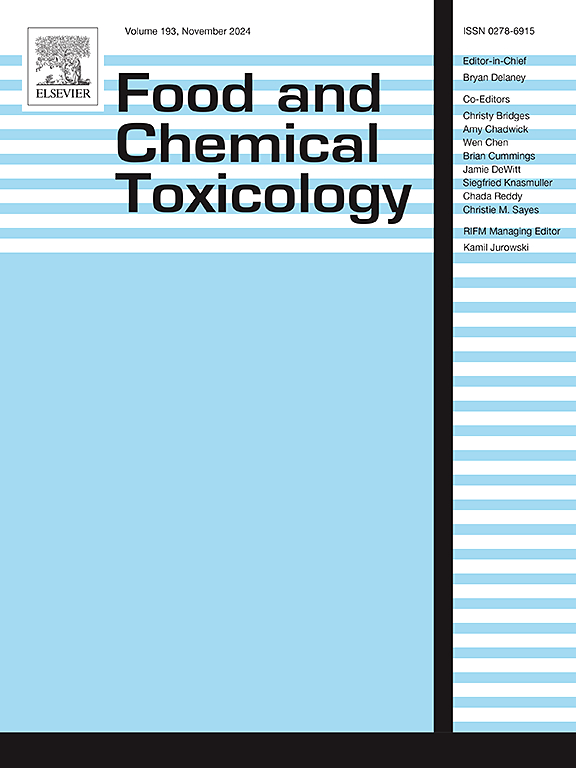Regulatory effect of curcumin on CD40:CD40L interaction and therapeutic implications
IF 3.9
3区 医学
Q2 FOOD SCIENCE & TECHNOLOGY
引用次数: 0
Abstract
Natural compounds have garnered significant attention as potential therapeutic agents due to their inherent properties. Their notable qualities, including safety, efficacy, favorable pharmacokinetic properties, and heightened effectiveness against certain diseases, particularly inflammatory conditions, make them particularly appealing. Among these compounds, curcumin has attracted considerable interest for its unique therapeutic properties and has therefore been extensively studied as a potential therapeutic agent for treating various diseases. Curcumin exhibits diverse anti-inflammatory, antioxidant, and antimicrobial effects. Curcumin's immune system regulatory ability has made it a promising compound for treatment of various inflammatory diseases, such as psoriasis, atherosclerosis, asthma, colitis, IBD, and arthritis. Among the signaling pathways implicated in these conditions, the CD40 receptor together with its ligand, CD40L, are recognized as central players. Studies have demonstrated that the interaction between CD40 and CD40L interaction acts as the primary mediator of the immune response in inflammatory diseases. Numerous studies have explored the impact of curcumin on the CD40:CD40L pathway, highlighting its regulatory effects on this inflammatory pathway and its potential therapeutic use in related inflammatory conditions. In this review, we will consider the evidence concerning curcumin's modulatory effects in inflammatory disease and its potential therapeutic role in regulating the CD40:CD40L pathway.
求助全文
约1分钟内获得全文
求助全文
来源期刊

Food and Chemical Toxicology
工程技术-毒理学
CiteScore
10.90
自引率
4.70%
发文量
651
审稿时长
31 days
期刊介绍:
Food and Chemical Toxicology (FCT), an internationally renowned journal, that publishes original research articles and reviews on toxic effects, in animals and humans, of natural or synthetic chemicals occurring in the human environment with particular emphasis on food, drugs, and chemicals, including agricultural and industrial safety, and consumer product safety. Areas such as safety evaluation of novel foods and ingredients, biotechnologically-derived products, and nanomaterials are included in the scope of the journal. FCT also encourages submission of papers on inter-relationships between nutrition and toxicology and on in vitro techniques, particularly those fostering the 3 Rs.
The principal aim of the journal is to publish high impact, scholarly work and to serve as a multidisciplinary forum for research in toxicology. Papers submitted will be judged on the basis of scientific originality and contribution to the field, quality and subject matter. Studies should address at least one of the following:
-Adverse physiological/biochemical, or pathological changes induced by specific defined substances
-New techniques for assessing potential toxicity, including molecular biology
-Mechanisms underlying toxic phenomena
-Toxicological examinations of specific chemicals or consumer products, both those showing adverse effects and those demonstrating safety, that meet current standards of scientific acceptability.
Authors must clearly and briefly identify what novel toxic effect (s) or toxic mechanism (s) of the chemical are being reported and what their significance is in the abstract. Furthermore, sufficient doses should be included in order to provide information on NOAEL/LOAEL values.
 求助内容:
求助内容: 应助结果提醒方式:
应助结果提醒方式:


